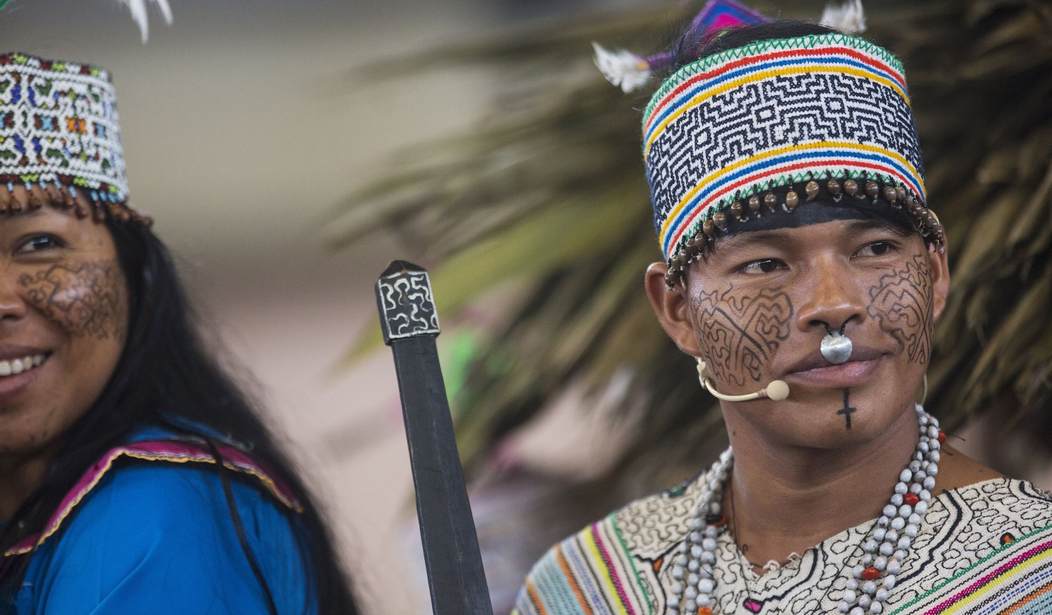It turns out that money doesn't matter to you if you live in a society without money.
I would never have guessed this without a scientific study to back it up. Thankfully, one does.
Study of tribes shows happiness not tied to moneyhttps://t.co/IXBa2w5i0R
— News Scouter, Ph.D. (@akawak1) February 7, 2024
The study, as reported by UPI (it still exists?), focused on the life satisfaction of people who live in primitive tribes whose life centers around hunting, fishing, and gathering fruits and berries.
In other words, stone age tribes.
And, it turns out, that their level of happiness is utterly unlinked from how much money they have.
"Surprisingly, many populations with very low monetary incomes report very high average levels of life satisfaction, with scores similar to those in wealthy countries," said lead researcher Eric Galbraith, a professor with McGill University in Montreal.
This runs counter to the notion that economic growth is a sure-fire way to increase the well-being of people in low-income countries, researchers noted.
Global surveys have found that people in wealthier countries tend to report higher levels of life satisfaction than those in poorer countries, researchers said in background notes.
However, these global polls tend to overlook people in societies where the exchange of money plays a minimal role in everyday life, and where livelihoods depend directly on nature, researchers said.
For this study, researchers surveyed nearly 3,000 people from Indigenous or primitive communities at 19 sites around the world.
Good to know.
As a side note let me point out that Dr. Eric Galbraith, that professor at McGill who is quoted above is...a climate scientist. I am shocked to find out that a climate change/environmental sciences guy is promoting the idea that we should all live in stone-age societies.
"Degrowth." What won't it do?
Based on these results, the research team concluded that human societies can support very satisfactory lives without necessarily requiring lots of material wealth.
"The strong correlation frequently observed between income and life satisfaction is not universal and proves that wealth -- as generated by industrialized economies -- is not fundamentally required for humans to lead happy lives," said senior researcher Victoria Reyes-Garcia, an anthropologist with the Institute of Environmental Science and Technology of the Universitat Autònoma de Barcelona in Spain.
There's that word again: "environmental," as in environmentalist.
I'm not even sure how they could do such a study as this and make reliable comparisons in "life satisfaction" between Stone Age tribal folks and people from Stockholm. It seems like the most meaningless sort of comparison. This survey was probably the first survey any of these tribal members had ever done, no less conceived of.
Now, this isn't to say that people from primitive societies can't be happy or satisfied with their lives; that would be absurd. I am sure that plenty of people were happy in every age, but chances are pretty good that if you took an average person from London in 1200 and put them in an apartment in London today, he would likely decide he got a pretty good deal out of it.
Studies like this tell you much more about the people who are doing them than the people who were surveyed. What I learned was that these "scientists" are on a mission to convince us that living in a pre-modern society is just fine, and no doubt it would be for many people.
In fact, should you choose to do so it is still quite possible to find a place to live off in the woods and live that way. Most people choose not to.
It would be interesting to know the average age of the surveyed person and the average lifespan of tribal members in the surveyed populations. I would wager that their life satisfaction at 30 was pretty good, and at 55 was nil because they were mostly dead. Even at 30, they may have lost three or four children to infant mortality.
I wonder if that factor was put into the life satisfaction ratings. Perhaps infant mortality rates didn't make it in there either. Literacy? No big deal. Medicine for easily treatable diseases? They don't know that they exist, so it doesn't make them unhappy to not have access.
Ignorance in this case is certainly bliss.
"I would hope that, by learning more about what makes life satisfying in these diverse communities, it might help many others to lead more satisfying lives while addressing the sustainability crisis," Galbraith added in a university news release.
And there it is, folks. Own nothing and you will be happy indeed. I wonder if Klaus Schwab is smiling broadly right now.







Join the conversation as a VIP Member